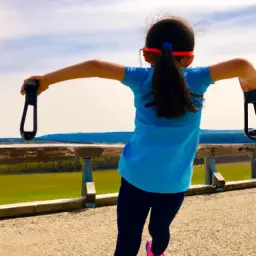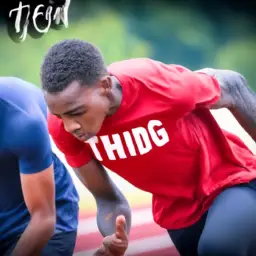Are you looking to improve your social skills and become a more resilient individual? You might want to consider developing grit. Grit is a combination of passion and perseverance, and it allows individuals to overcome obstacles and achieve their goals. Highly gritty individuals tend to have exceptional social skills, which allow them to connect with others, build relationships, and navigate complex social situations.
Here are nine habits of highly gritty individuals with exceptional social skills that you can adopt to improve your own social skills and cultivate grit.
First, highly gritty individuals practice self-discipline. They set goals, create plans, and stick to them, even when faced with obstacles. They also prioritize their time and energy, focusing on activities that align with their goals and values. By practicing self-discipline, you can develop the focus and determination needed to achieve your social goals, such as building a network of supportive friends or improving your communication skills.
Key Takeaways
- Highly gritty individuals prioritize their time and energy, practicing self-discipline by resisting temptation and saying no to things that hinder progress.
- Failure should be embraced as a natural part of the learning process, and highly gritty individuals have a growth mindset and adapt to setbacks.
- Building meaningful relationships is a priority for highly gritty individuals, who understand the value of active listening, authenticity, making time for others, showing appreciation, and being present.
- Effective communication involves clear and respectful expression of thoughts and feelings, as well as active listening, nonverbal communication, and responding appropriately and respectfully.
Practice Self-Discipline
You gotta practice self-discipline if you want to be a highly gritty individual with exceptional social skills. This means resisting temptation and setting priorities that align with your goals.
It’s easy to get sidetracked by distractions and impulses, but a person with self-discipline knows how to stay focused on what’s important. Resisting temptation can be difficult, but it’s essential for developing self-discipline.
This means saying no to things that might be fun or enjoyable in the moment but could hinder your progress in the long run. Setting priorities is also crucial, as it helps you stay on track and avoid getting overwhelmed by competing demands.
By practicing self-discipline, you’ll not only become more resilient and persistent but also gain the respect and admiration of others.
Develop Emotional Intelligence
Improving your emotional intelligence can lead to better communication and stronger relationships. Developing empathy is a crucial aspect of emotional intelligence that allows you to understand and connect with others on a deeper level. This involves putting yourself in someone else’s shoes and seeing things from their perspective.
When you develop empathy, you become more attuned to other people’s emotions and can respond to them in a way that shows you understand and care about their feelings.
Active listening is another essential skill that is part of emotional intelligence. This involves giving your full attention to the person speaking and focusing on what they’re saying without interruption or distraction. When you actively listen, you show that you respect the other person’s thoughts and feelings. It also allows you to pick up on important details and nuances in their communication that you might otherwise miss.
To develop active listening skills, try to be fully present in conversations, avoid distractions, and ask clarifying questions to show that you’re engaged and interested. By developing empathy and active listening skills, you can improve your emotional intelligence and build stronger connections with those around you.
- Practice putting yourself in someone else’s shoes
- Listen without interrupting or getting distracted
- Respect the other person’s thoughts and feelings
- Stay present in conversations
- Ask clarifying questions to show engagement
Embrace Failure
Don’t be afraid to embrace failure – it’s a natural part of the learning process and can lead to growth and progress. Highly gritty individuals with exceptional social skills understand that setbacks are inevitable, and they use them as opportunities to learn and improve themselves.
When you embrace failure, you give yourself permission to take risks and try new things. You understand that mistakes are simply part of the journey towards success, and you don’t let them discourage you. Instead, you learn from your mistakes, adapt, and keep moving forward.
This mindset not only helps you to achieve your goals but also allows you to build resilience and develop a growth mindset that will serve you well in all areas of your life.
So, don’t be afraid to take risks, make mistakes, and embrace failure – it’s all part of the process of becoming a highly gritty individual with exceptional social skills.
Build Meaningful Relationships
Connecting with others on a deep level and building meaningful relationships will bring a sense of fulfillment and joy to your life. Highly gritty individuals with exceptional social skills understand the value of these connections, and prioritize them in their daily lives. Here are some tips to help you build more meaningful relationships:
-
Practice active listening: When in conversation with someone, make an effort to truly listen to what they’re saying. Pay attention to their body language and tone of voice, and ask questions to clarify any points you don’t understand. This will help you build trust and empathy with the person, and deepen your connection.
-
Be authentic: Don’t try to be someone you’re not in order to impress others. People are attracted to individuals who are genuine and true to themselves. Embrace your quirks and flaws, and share them with others. This will help you build a more authentic and meaningful connection with the people in your life.
-
Make time for others: In today’s fast-paced world, it’s easy to get caught up in our own lives and forget about the people around us. Make a conscious effort to spend time with the people you care about, whether it’s grabbing a coffee or going for a walk. This will help you build stronger relationships and show others that you value their presence in your life.
-
Show appreciation: Don’t take the people in your life for granted. Take time to thank them for their support and kindness, and show them that you appreciate their presence in your life. This will help you build a stronger bond with them, and deepen your connection.
-
Be present: When spending time with others, put away your phone and other distractions. Give the person your full attention, and be present in the moment. This will show them that you value their time and company, and help you build a more meaningful and lasting connection.
By incorporating these habits into your life, you can build meaningful relationships with others and experience the joy and fulfillment that comes with them. Remember to practice active listening and authenticity, make time for others, show appreciation, and be present in the moment. Your relationships will flourish, and you’ll feel more connected to the world around you.
Communicate Effectively
To effectively communicate with others, you need to be able to express your thoughts and feelings clearly and respectfully. This involves not only choosing the right words but also being aware of your tone, body language, and facial expressions. Active listening is a crucial aspect of effective communication. It involves not just hearing what the other person is saying but also understanding their perspective and responding in a way that shows you have heard them. This requires giving your full attention to the speaker, asking clarifying questions, and avoiding interrupting or judging them.
Nonverbal communication is also a vital component of effective communication. It includes your posture, gestures, eye contact, and facial expressions. These nonverbal cues often convey more than words can, and they can either enhance or detract from your message. For example, maintaining eye contact while speaking shows confidence and sincerity, while fidgeting or avoiding eye contact can give the impression of discomfort or dishonesty. By paying attention to your nonverbal cues and being mindful of how they might be perceived, you can communicate more effectively and build stronger relationships with others.
| Active Listening | Nonverbal Communication | ||
|---|---|---|---|
| Give your full attention to the speaker | Be aware of your posture | ||
| Ask clarifying questions | Use appropriate gestures | ||
| Avoid interrupting or judging | Maintain eye contact | ||
| Show that you have heard the speaker | Be mindful of your facial expressions | Respond appropriately and respectfully. |
Practice Self-Care
Make sure you take care of yourself by practicing self-care regularly, so that you can improve your overall well-being and be better equipped to handle the challenges life throws your way.
It’s easy to get caught up in the fast-paced nature of life, but it’s important to prioritize rest and relaxation. This means taking breaks when needed, getting enough sleep, and engaging in activities that bring you joy and relaxation.
Balancing work life is also crucial when it comes to practicing self-care. While it’s important to work hard and strive for success, it’s equally important to take breaks and prioritize your mental and physical health.
This can mean setting boundaries with work, delegating tasks, or even taking a mental health day when needed.
Remember, taking care of yourself is not selfish, it’s necessary for your overall well-being and success in life.
Frequently Asked Questions
How can I maintain my self-discipline when facing difficult challenges?
When you’re faced with difficult challenges, it’s easy to feel unmotivated and procrastinate. But there are practical tips you can use to stay disciplined and on track.
First, break down your task into smaller, more manageable steps. This will help you avoid feeling overwhelmed and make progress towards your goal.
Second, find a way to hold yourself accountable, whether it’s telling a friend about your progress or setting a deadline for yourself.
Finally, remind yourself of your end goal and the reasons why you started this task in the first place. By using these strategies for overcoming procrastination, you can maintain your self-discipline and achieve your goals.
What are some practical ways to develop emotional intelligence?
If you want to develop your emotional intelligence, there are some practical exercises you can try.
First, start by improving your emotional awareness. This means being able to recognize your own emotions and the emotions of others. You can practice this by paying attention to your own feelings and those of the people around you.
Another exercise is to practice empathy. This means putting yourself in someone else’s shoes and trying to understand their perspective.
You can also work on your communication skills by actively listening to others and practicing expressing your own emotions in a clear and respectful way.
By focusing on these practical exercises, you can improve your emotional intelligence and build stronger relationships with others.
How do I overcome the fear of failure and use it as a learning opportunity?
Overcoming failure can be daunting, but it’s important to remember that failure is a natural part of the learning process. Instead of letting the fear of failure hold you back, use it as an opportunity to learn and grow.
When you experience failure, take the time to reflect on what went wrong and what you can do differently in the future. Don’t be too hard on yourself, but rather use the experience as a tool to develop resilience and perseverance.
Remember, failure is not the end but rather a stepping stone towards success.
What are some effective ways to build meaningful relationships in both personal and professional settings?
To effectively network and build rapport in both personal and professional settings, it’s important to prioritize building genuine relationships. This means taking the time to get to know people beyond just their job title or personal interests.
Actively listen to what they have to say, ask thoughtful questions, and follow up on previous conversations. Additionally, don’t be afraid to show vulnerability and share personal stories or experiences. This can help create a deeper connection and build trust.
Networking events and social media can also be great tools for expanding your network, but it’s important to approach them with an open and authentic mindset. By prioritizing genuine connections and being intentional in your interactions, you can build meaningful relationships that can benefit both your personal and professional life.
How can I improve my communication skills to better convey my ideas and thoughts?
Improving your communication skills can be a challenging task, but there are a few tips that can help you become a better speaker and listener.
One way to improve your public speaking is to practice regularly, whether it’s in front of a mirror or with friends and family. This will help you become more comfortable with speaking and help you identify areas for improvement.
Additionally, actively listening in conversations can help you better understand others’ perspectives and ideas, which can, in turn, help you better convey your own thoughts and ideas. Some ways to actively listen include maintaining eye contact, asking follow-up questions, and summarizing what the other person has said.
With time and practice, you can improve your communication skills and become a more effective communicator in both personal and professional settings.
Conclusion
So there you have it, nine habits of highly gritty individuals with exceptional social skills.
By practicing self-discipline, developing emotional intelligence, embracing failure, building meaningful relationships, communicating effectively, and practicing self-care, you can become one of these exceptional people.
Remember, it’s not about being perfect or never making mistakes. It’s about having the grit and resilience to keep going, to learn from your failures, and to continually improve yourself.
By incorporating these habits into your daily life, you can become someone who not only excels in social situations but also inspires others to do the same.
So go out there and start building those habits today!














































































































